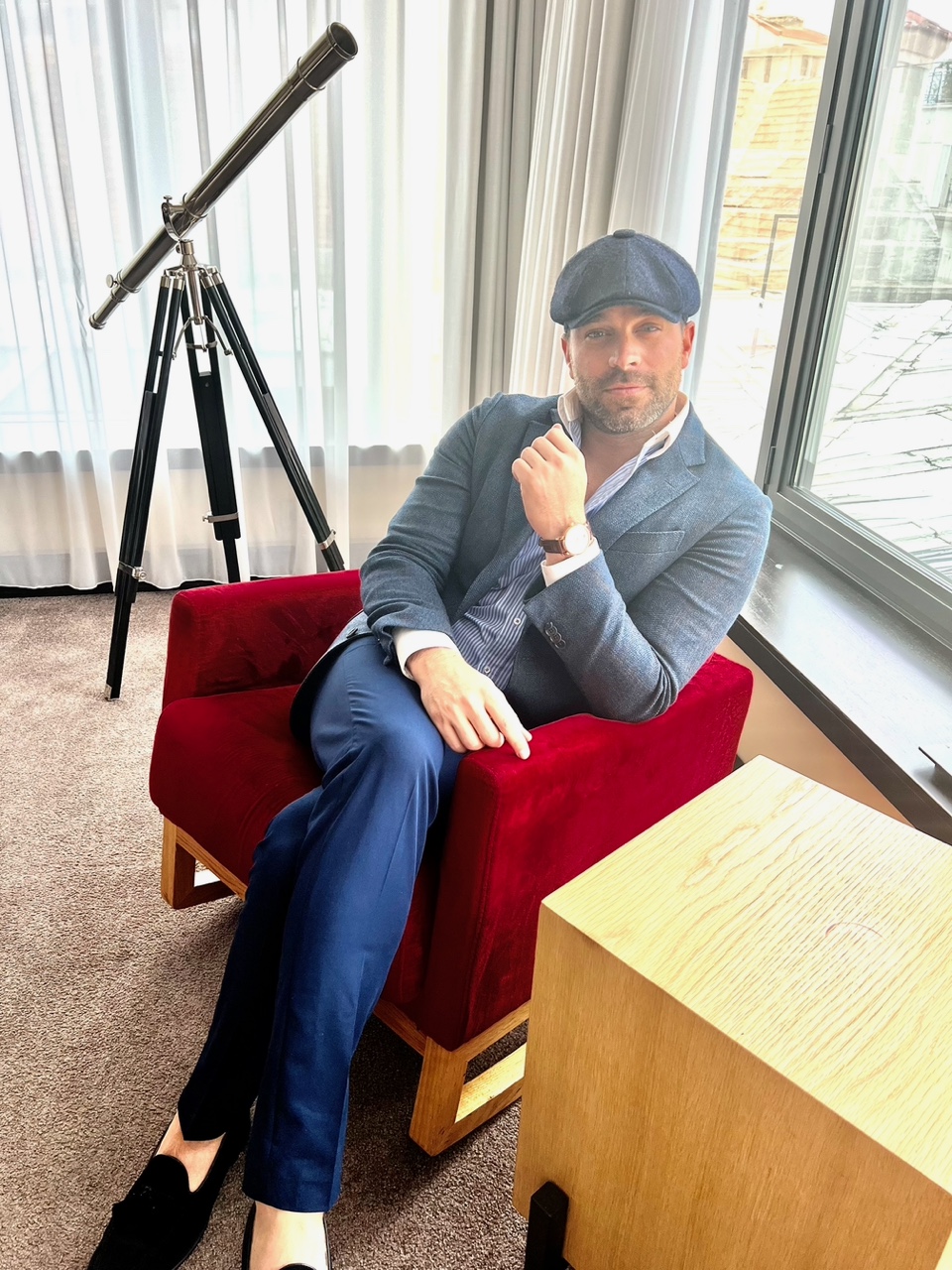
- Fashion
Alejandro Nones – The Star of “Who Killed Sara?”
High above the bustle and heat of the 75th Cannes Film Festival, in the penthouse suite of the Five Seas Hotel, Alejandro Nones – star of the smash-hit Netflix series, Quien Mato A Sara? (Who Killed Sara?) – now in its third season – sits, relaxed, open and exuding a huge dose of the appeal that has more than a million fans following him on Instagram.
Being a brand ambassador for a house like Chopard, one of the official sponsors of the Cannes Film Festival is a gig many would covet, but the way Nones tells it, the partnership came about by accident. Like a lot of successful people, he downplays the hard work and excellence that brings him to this moment in the spotlight, but this Venezuelan native who wore his first tux as a 13-year-old and chooses quality products like La Caja (The Box) to produce, plans his moves to bring the best quality to opportunity when it presents itself.
Congratulations on having a number one show in over 44 countries worldwide. Was the response to Who Killed Sara? a surprise?
It was really unexpected because who could say that a Mexican show could get that response? When you do a project, you hope a lot of people watch it. It’s like 100% we need to do something from Mexico or Latin America in general, and the countries that speak Spanish watch it, but I don’t know what happened. Something connected with the people during quarantine. The whole Covid thing helped a lot I think. Everybody changed their minds and was more open to watching different things. They reached out a little more, so I think it’s just a change of the world. The industry is in a different moment. One of my next projects is in Turkey with an Iranian actor and Germans too.
You wear clothes well, and you are in a top-rated show, how important is clothing in character development?
I am involved in everything because I care so much. I learned through the years if you let something happen, nobody cares. I believe in the character more than you. You don’t know about my character. I have to fill in all the empty spaces.
For me it is very important what you are wearing because it shows who you are in so many other ways; you choose who you want to be. In the story, I put colors in the moments because for me they have a meaning. Rudolfo, who is my character, starts to change. At first, he felt death from the inside. He did not own his life and he didn’t have any desire about living. He didn’t have very many expressions at the beginning.
It’s just through the eyes that you can see the sadness inside because he doesn’t own his life and he doesn’t earn his voice so when the character spoke, his voice is broken, because I connect death with air. If you don’t have air, you are dead, so that’s why he talks that way. He starts to change because of what is happening in the story. So, for me what you’re wearing is very, very important.
When you are at home what do you wear?
It depends. I’m naked a lot. (Laughs.) I like comfortable T-shirts. It depends. I feel hot most of the time even in the winter. I try and adapt to that and be fresh as much as I can.
What was the first outfit that you remember wearing as a kid?
I’ve always been that kid who is different. I love hats and fashion in general. My mom always teased me. She said when I like pants or shoes, I always wanted to wear that particular trousers or shoes. She would always try to get me to wear something else and I would always say, “No, no. I want that.” (Laughs). When I was a kid, I would love cool jeans and sneakers and boots. I was five years old.
When I was around 15 years old, I would go to quinceañeras – the parties that happen when you are 15 years old, they are very big in Venezuela. My older sister and her friends would have them. You wear tuxedos, so I bought my first tuxedo when I was around 13. I was always a kid who looked like he was a grown man.
A few years ago, I saw La Caja/The Box, here at the Festival. A really wonderful film and socially conscious. How did you come to produce it?
As an actor you are always waiting for someone else to make a decision about you being in something, but if you take control, and there is a story that you want to tell, or you want to be part of, you have to do what you have to do to make that happen.

